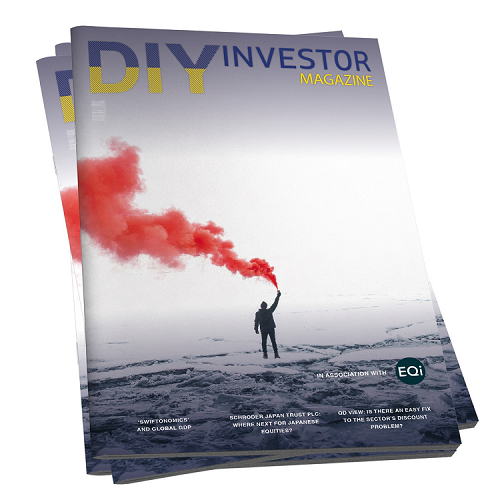Dec
2023
Staying on course in a volatile sector…
DIY Investor
22 December 2023

IBT has delivered superior returns with lower volatility than the wider market…by Alice Rigby
This year has seen big changes for International Biotechnology Trust (IBT) since SV Health Investors served notice on their agreement to manage the trust. IBT’s Board have appointed Schroders to take on management of the trust later this year – and, crucially, the trust’s existing management team, Ailsa Craig and Marek Poszepczynski, will be moving to Schroders to continue managing the trust.
While this means it has been all change behind the scenes, when it comes to the trust’s investment process, the song remains the same. One of the most distinguishing factors of this process is Ailsa and Marek’s focus on delivering NAV growth with relatively limited volatility, in a sector otherwise noted for this specific trait.
Risk aware
Their approach to this challenge is exemplified by their recent investment activity. The first pillar of the team’s approach is a keen understanding of the biotechnology sector’s investment cycle, which can vary markedly from that of markets more broadly. The last few years have demonstrated this perfectly, with the Covid-19 pandemic providing an understandable boon to the sector as vaccine efficacy became a cornerstone of public policy, with even the smallest biotechnology stocks seeing their valuations escalating in 2021. Rising inflation in the post-pandemic period put paid to this, with the sector especially punished. Ailsa and Marek can adjust the weighting of larger, more stable but slower growth companies versus smaller, higher risk but faster growing companies in the portfolio in anticipation of these sort of market trends.
Nonetheless, as Ailsa pointed out in our recent podcast episode, she and Marek believe some strong signs of recovery are coming through. These include secondary offerings performing well, with high quality businesses able to raise money and an increase in mergers and acquisition activity in the sector. Conversely, the team do not consider the failure of some smaller listed companies as necessarily being a negative signal, instead arguing that poorer quality companies leaving the market is a good thing for the health of the sector as a whole.
A balanced blend
The second pillar of the team’s approach is to avoid concentrating too singularly on particular opportunities. In practice, in 2023 this has meant that while they have tilted the portfolio further into small and mid-caps as the recovery continues, they have avoided going head first into large positions in single opportunities by grouping positions into “baskets”. This means spreading the risk by using their scientific backgrounds to select a few companies that are working on technologies to tackle the same challenge.
This leaves them less exposed to the binary outcomes often associated with biotechnology, while still taking advantage of new technologies that are transforming the industry.
Watch your step
Of course, binary outcomes are another hallmark of the biotechnology sector and constitute the third pillar of Ailsa and Marek’s risk management approach. Or rather, they opt to avoid binary events as much as possible. When events, like pharmaceutical trials, occur, the outcome for a stock price can be stark either way.
However, thanks to the inherent optimism of investors, often a proportion of the upside will have been captured in the run up to an event, while the downside risk can be substantial. As a result, Ailsa and Marek prefer to reduce the trust’s exposure to a stock ahead of anticipated binary events in order to avoid the potential for a significant derating.
This played out recently in the case of portfolio holding Uniqure. The company has an approved treatment for Haemophilia B, which constitutes its primary business line, but was also in the trial process on a treatment for Huntington’s Disease.
With a read-out on the trials expected imminently, Ailsa and Marek reduced their position in the stock from being a top ten position down to around 0.1% of the overall portfolio. This proved pertinent when the trial read-out was interpreted as negative and prompted a fall in Uniqure’s share price of around 40%.
While this kind of careful application of risk management means fewer headline-grabbing overweights, it should offer a solution to investors seeking an exposure to biotechnology without heightened volatility. Indeed, over one, three and five years the trust has outperformed its biotechnology-focused investment trust peers and can boast lower volatility than them consistently through the period, as we discussed at length in our most recent research.
View the latest research note here >
Disclaimer
Disclosure – Non-Independent Marketing Communication
This is a non-independent marketing communication commissioned by International Biotechnology. The report has not been prepared in accordance with legal requirements designed to promote the independence of investment research and is not subject to any prohibition on the dealing ahead of the dissemination of investment research
Commentary » Investment trusts Commentary » Investment trusts Latest » Latest » Mutual funds Commentary



Leave a Reply
You must be logged in to post a comment.